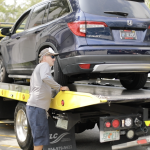
Most drivers will be involved in at least a couple of accidents over their many decades behind the wheel. Fortunately, many car accidents are relatively minor, and the only real cost is associated with paying an insurance deductible to get the car fixed. However, other car accidents can cost a small fortune. Some of your regular expenses may even be elevated going forward, such as your car loan or auto insurance payments. Finding a way to control expenses after an accident is essential.
Maximize the Benefits of Your Auto Insurance
Initially, you will have expenses related to emergency medical attention that you received, vehicle towing, vehicle repairs, a rental car and more. If you purchased a robust and comprehensive auto insurance policy, you may only need to pay the deductible even if you have incurred significant expenses as a result of the accident. Understand your coverage so that you can maximize its benefits. Identify who hit you, and get as much information as you can. If the driver were a cab, Lyft, or Uber driver there will be a few more things your insurance will want to know.
Remember Your Health Insurance Benefits
In the event that your personal injury coverage is not sufficient to pay for all of your medical expenses, keep in mind that health insurance benefits may be applicable. Auto insurance benefits generally should be exhausted first, and the other driver’s insurance may also pay for some of these expenses. In severe cases, you can always look into the possibility of filing a personal injury lawsuit to recoup funds.
Take Vacation Time to Recover
Regardless of whether you need to take a few days off of work to recover or you need several weeks, this time does not necessarily need to be unpaid. You can always talk to your employer about using your sick and vacation hours. Many people have numerous weeks of paid time off accrued that could be used at this time. This is also a good time to reflect on what went wrong to cause the accident, and what you can do in the future to be a better driver and prevent that from happening again. You might feel like a failure now — especially if you caused the accident by making a dumb choice like drinking and driving or running a red light. But failure is simply a step on the road to success, so write down what you learned, keep a positive mindset, and move forward.
Avoid Rolling Negative Equity Into a Car Purchase
Some people are in the unfortunate position of being upside down on their car loan when the vehicle is totaled. Without gap insurance on the vehicle, you will be required to pay off the difference between the outstanding loan balance and the car’s value. Some people will roll this negative equity into a new car purchase. This, unfortunately, puts you in the likely position of being upside down with your new vehicle almost immediately. In addition, your monthly auto loan payments are higher than necessary.
Focus on the Cost of Auto Insurance
Your car insurance premium may also increase after an accident. This is particularly true if you have had a few blemishes on your driving history recently. You may be able to save money on your premium or at least minimize the amount of the increase to your premium by taking a driver’s safety course. You can also choose to buy a new car that is more affordable to insure.
The financial impact of a car accident can be substantial, and some aspects of the impact can linger. If you have recently had a car accident, use these tips to reduce the financial stress that you may experience as a result of the event.
Need help transporting your new car to replace the one you just crashed? Check out our services here!
References:
6 Ways To Reduce Your Car Insurance Rates After An Accident | Money Under 30
The Financial Impact of an Accident | Emmanuel Sheppard and Condon
Types of Car Insurance | Acceptance Insurance
4 Practical Ways to Learn from Failure | Accept and Conquer AA Alternatives
Injured in an Uber or Lyft Accident? Here’s What to do Next | LegalListings





Comments by Direct Connect Auto Transport